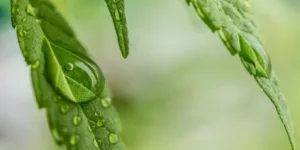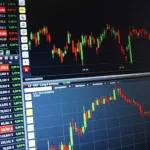Public awareness of the numerous health benefits of CBD in both the US and Europe has been rising rapidly. As more Doctors start recommending CBD, we’re seeing mass adoption rates and stronger demand. This is boosted by the new Farm Bill that makes hemp legal. As a consequence, analysts tipped CBD as one of the hottest start-up segments in E-commerce. The problem? Good quality CBD is about to face a supply squeeze. As Edmon Mamane, the CEO of Terravida said: “In January 2019, our CBD white-label and wholesale department helped create more new brands than in all of 2018, as retailers invest in product diversification. This will no doubt raise the need for more raw resources to satisfy this demand”.
Why CBD may be in short-supply soon:
American companies like Industrial Hemp Partners (IHP) provide the critical components to CBD refineries in the US. IHP provide them with bio-mass and CBD isolate which has to be non-GMO certified and free from pesticides. They undergo robust certification tests which are necessary in order to fulfill the quality standards required to provide CBD that will actually be advantageous to health. Now that CBD has gained popularity, it is unclear whether companies like IHP can keep up with demand. Some retailers who do not take a long-term view on quality and reputation may look to Asia to plug the gap – unless regulators and the public take action to prevent a potential disaster.
Why is CBD quality such a serious issue?
For the first time, Americans have the opportunity to break free from the opioid crisis – as CBD is seen as a credible alternative to many addictive drugs that are used for chronic illnesses. Yet if the public turn to inferior products that are not certified, many may never get to see the true health benefits of CBD cannabidiol. Recently, Dr. Deepa Verma, the founder of Synergistiq Integrative Health, Clearwater, FL warned against buying CBD from random sources. She said: “CBD must be analyzed and evaluated to certify that it is pure and free from harmful toxins and pesticides and chemicals”. She also said that concerning random CBD cannabidiol sources: “It is unclear where the products are derived from and they may contain toxic and harmful chemicals and substances which could damage one’s health or exacerbate already existing medical conditions”.
Quality issues with CBD from India and China:
Both China and India have problems with soil contamination. Mass producers in Asia also have no problem using pesticides to save their crop. Farmers in these regions often think that if a seed is planted and any effort, even chemically, is made to keep pests away and produce a green plant, it is a success. This does not take into consideration genetic modification of seeds and the serious consequences of green but toxic plants. Anyone who understands the seriousness of this will not take a gamble with cheap CBD from these countries. Where low salaries are a common practice, there is often a problem with upholding quality requirements where product certification is issued locally as opposed to in consumer countries such as the EU and US.
More on the CBD supply squeeze and ways to cope with it:
It is also known that whilst CBD refineries have a 2-year waiting list to buy equipment, the real issue is that farm crops that meet strict organic criteria, will run out if more brands try to build a stockpile. Already, B2B wholesale companies with CBD are trying to buy out entire crops from reputable US farmers. The real problem is that CBD isolate may run out.
Ways in which the industry is trying to deal with this – is by planning ahead, although the legalization of hemp by the Trump administration caught the industry off-guard.
Ways in which consumers deal with a potential shortage – is to buy in bulk. Instead of buying CBD supplies for one week at a time, the option of buying for 3 months in advance, is now more appealing. Not least because of bulk discounts – but more so in order to secure sufficient supplies.

Conclusion:
It is time to educate the industry and consumers: If we are going to see any benefits from the New Farm Bill that legalized hemp, then preventing uncertified products from flooding the market should be a priority. Education is much needed also because those who suffer from chronic illnesses may also suffer financially. One potential win for the consumer is that Epidiolex, a high-end CBD brand with FDA approval, will certainly not be the only product available – and more affordable high-end certified products are now within reach, such as the entire range from Terravida.








